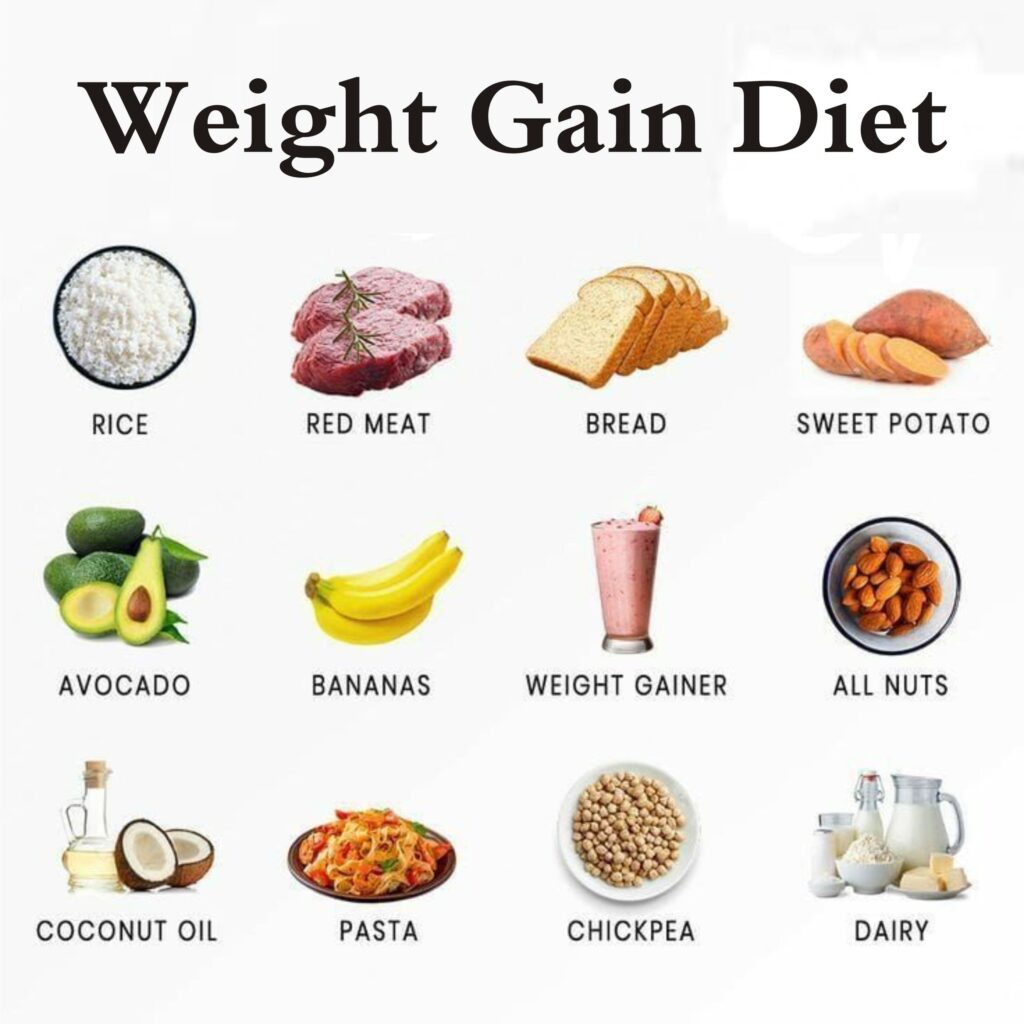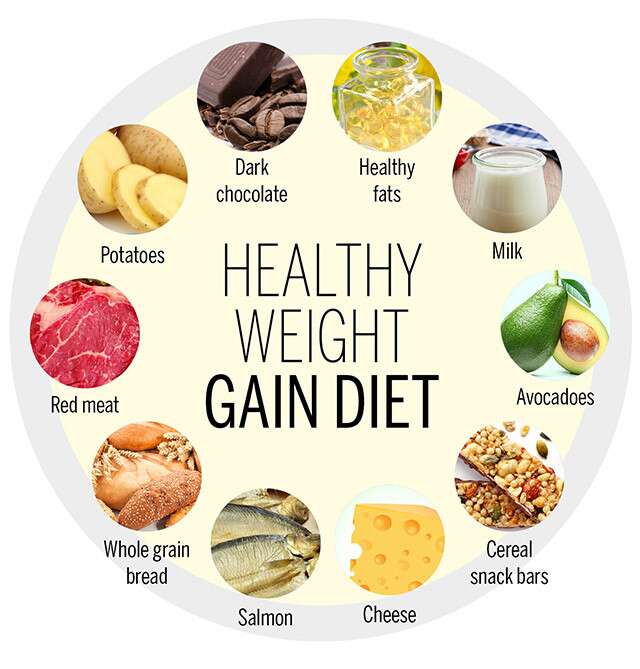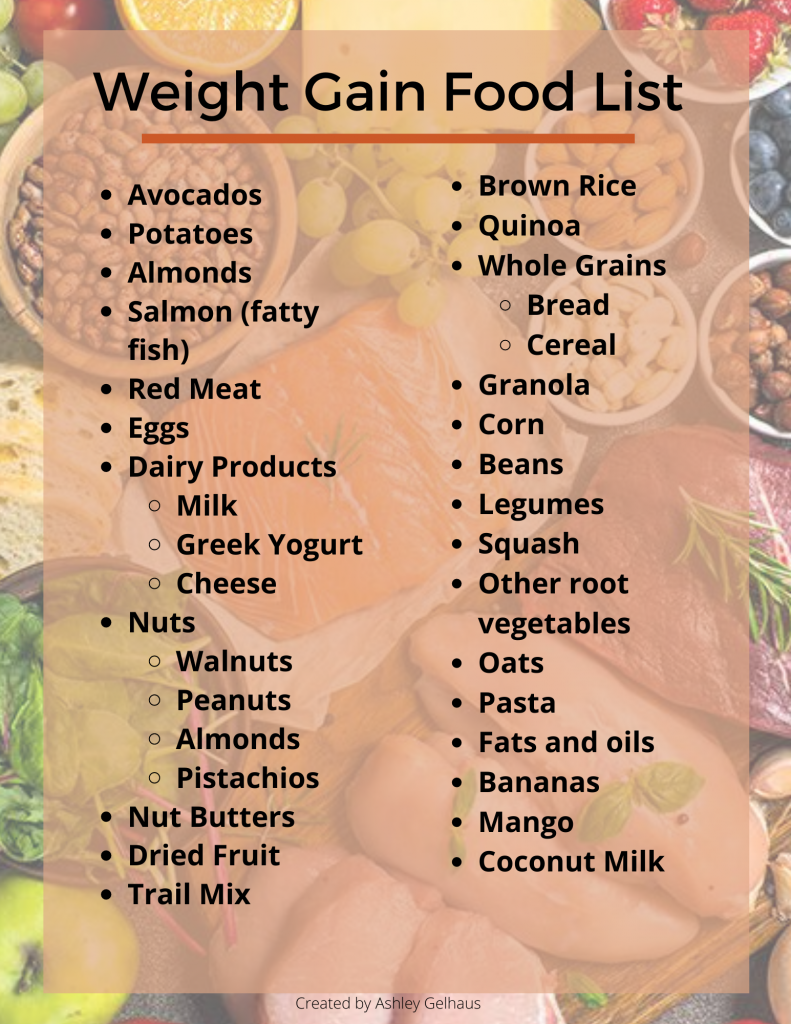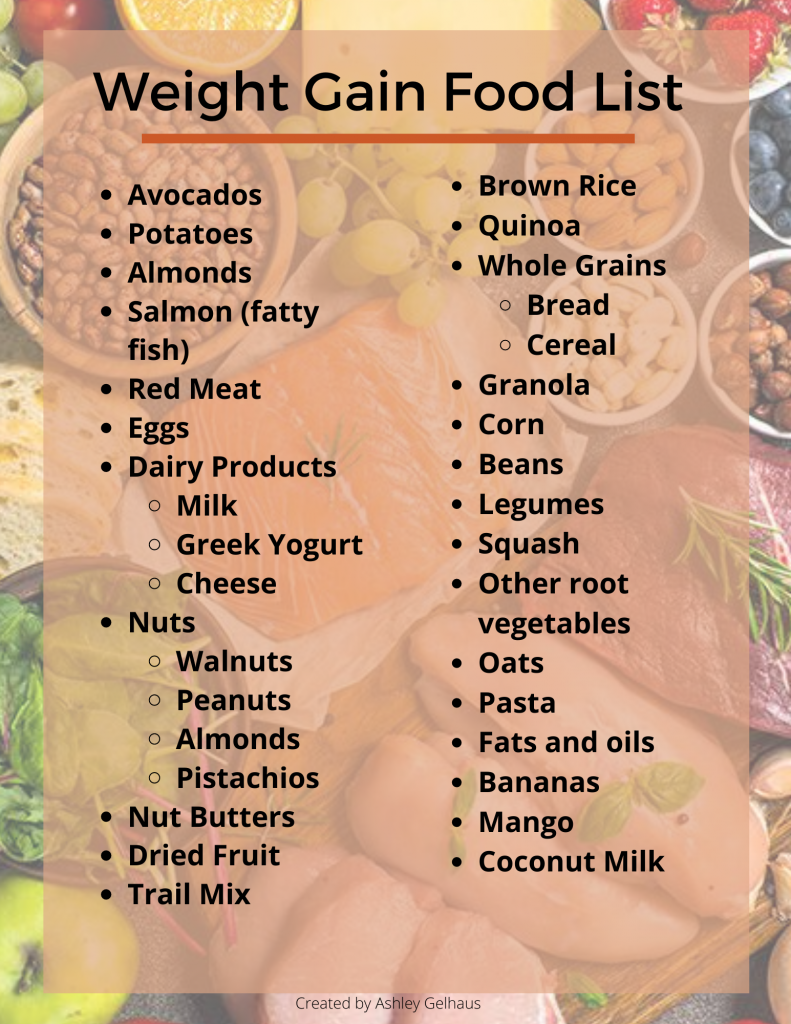So, you’re looking for some healthy weight gain tips for females? Well, you’ve come to the right place! In this article, we’ll discuss some effective strategies that can help you achieve your weight gain goals in a safe and sustainable way. Whether you’re looking to build muscle, enhance your curves, or simply increase your overall body weight, we’ve got you covered with some practical tips and advice.
In this article, we’ll explore various aspects of weight gain for females. From understanding the importance of a balanced diet and incorporating nutrient-dense foods into your meals, to incorporating regular exercise and maintaining a positive mindset, we’ll cover it all. You’ll also learn how to monitor your progress, make necessary adjustments to your routine, and seek professional guidance when needed. So, if you’re ready to embark on your weight gain journey and discover how to do it the healthy way, stay tuned for some valuable insights and practical tips that will guide you towards your desired results.
Healthy Weight Gain Tips for Females
Understanding Healthy Weight Gain
Why is Healthy Weight Gain Important?
Healthy weight gain is important for females who are underweight or have a low body mass index (BMI) because it helps improve overall health and enhances the body’s ability to function optimally. Gaining weight in a healthy manner provides the necessary energy and nutrients needed for daily activities, supports hormonal balance, strengthens the immune system, and promotes the development of lean muscle mass.
The Difference between Healthy Weight Gain and Unhealthy Weight Gain
It is crucial to understand the difference between healthy weight gain and unhealthy weight gain. Healthy weight gain involves increasing calorie intake through a balanced diet and focusing on nutrient-dense foods. Unhealthy weight gain, on the other hand, often involves consuming excessive amounts of unhealthy, processed foods that lack essential nutrients. Unhealthy weight gain is associated with increased risks of chronic diseases, such as heart disease, diabetes, and obesity.
Common Misconceptions about Weight Gain
There are several misconceptions surrounding weight gain, particularly for females. One common misconception is that weight gain means gaining fat. However, healthy weight gain focuses on gaining muscle mass rather than solely increasing body fat percentage. Another misconception is that weight gain is solely achieved through excessive calorie intake, resulting in unhealthy eating habits. In reality, healthy weight gain requires a balanced approach that involves consuming the right types and amounts of nutrients.
Setting Realistic Weight Gain Goals
Why It’s Important to Set Realistic Goals
Setting realistic weight gain goals is crucial to ensure sustainable and healthy progress. Unrealistic goals can lead to frustration, disappointment, and potentially harmful behaviors, such as crash dieting or over-exercising. By setting achievable goals, females can maintain a positive mindset, prevent relapse, and improve their overall well-being.
Factors to Consider When Setting Weight Gain Goals
When setting weight gain goals, it is important to consider various factors, including age, current weight, height, activity level, and overall health. Consulting with a healthcare professional or registered dietitian can help determine an appropriate weight gain goal based on individual needs and circumstances. Additionally, it is essential to set goals that focus on gaining muscle mass, rather than solely increasing body weight.
Creating a Personalized Weight Gain Plan
Creating a personalized weight gain plan involves developing a comprehensive approach that addresses nutrition, exercise, and lifestyle factors. A registered dietitian can help tailor a plan to meet individual needs and preferences. This may involve increasing calorie intake, eating balanced meals and snacks throughout the day, incorporating strength training exercises, and managing emotional well-being.

Nutrition for Healthy Weight Gain
Identifying Macronutrient Needs
To support healthy weight gain, it is important to identify and meet macronutrient needs. Macronutrients include carbohydrates, proteins, and fats, all of which play essential roles in the body. Carbohydrates provide energy, proteins support muscle growth and repair, and healthy fats aid in hormone production. It is crucial to consume a balanced combination of these macronutrients to support weight gain and maintain overall health.
Choosing Nutrient-Dense Foods
When trying to gain weight in a healthy manner, it is essential to prioritize nutrient-dense foods. Nutrient-dense foods provide a higher concentration of vitamins, minerals, and other beneficial compounds per calorie. Examples of nutrient-dense foods include lean proteins (such as chicken, fish, and tofu), whole grains, fruits, vegetables, nuts, and seeds. These foods not only provide necessary nutrients but also support overall health.
Balancing Calorie Intake and Expenditure
To effectively gain weight, it is important to create a calorie surplus by consuming more calories than the body burns. However, it is essential to strike a balance and avoid excessive calorie intake to prevent unwanted weight gain. Calculating calorie needs with the help of a registered dietitian can help determine an appropriate calorie intake for healthy weight gain. Balancing calorie intake with regular exercise, particularly strength training, allows the body to build muscle mass rather than storing excess calories as fat.
Meal Prepping for Weight Gain
Meal prepping can be a helpful strategy for females looking to gain weight. Planning and preparing meals in advance ensures that nutritious and calorie-dense foods are readily available throughout the week. It also helps prevent impulsive food choices and allows for better portion control. By devoting time to meal prepping, females can ensure that their meals are balanced, delicious, and supportive of their weight gain goals.
Strength Training for Weight Gain
The Role of Strength Training in Weight Gain
Strength training plays a significant role in healthy weight gain for females. It helps stimulate muscle growth, increase lean body mass, and improve overall strength and functionality. Engaging in strength training exercises, such as weightlifting or bodyweight exercises, promotes the development of muscle tissue and contributes to a more toned and defined physique.
Developing a Strength Training Routine
When developing a strength training routine, it is important to consider individual fitness levels and capabilities. Beginners should start with lighter weights and gradually increase resistance over time. A well-rounded routine should target all major muscle groups and include exercises such as squats, deadlifts, bench presses, and lunges. Working with a qualified fitness professional can ensure proper form, technique, and progression.
Progressive Overload and Muscle Growth
Progressive overload is a key principle in strength training for weight gain. It involves gradually increasing the intensity, duration, or resistance of an exercise over time to continually challenge the muscles. By progressively overloading the muscles, females can stimulate muscle growth, improve strength, and achieve their weight gain goals. It is important to listen to the body, avoid overtraining, and allow for proper rest and recovery between workouts.
Incorporating Compound Exercises
Compound exercises are multi-joint movements that engage multiple muscle groups simultaneously. These exercises are highly effective for weight gain as they stimulate muscle growth and increase overall strength. Examples of compound exercises include squats, deadlifts, bench presses, pull-ups, and lunges. Incorporating compound exercises into a strength training routine allows females to target multiple muscle groups efficiently and maximize their weight gain efforts.

Cardiovascular Exercise for Weight Gain
How Cardio Can Support Healthy Weight Gain
While cardio exercises are often associated with weight loss, they can also play a supportive role in healthy weight gain for females. Cardiovascular exercise improves cardiovascular health, boosts endurance, and enhances overall fitness. Engaging in moderate-intensity cardio exercises can help increase appetite, improve digestion, and support a healthy metabolism, all of which contribute to healthy weight gain.
Finding the Right Balance of Cardio
Finding the right balance of cardio is crucial when aiming to gain weight. Too much cardio can increase calorie expenditure and hinder weight gain progress. However, incorporating moderate amounts of cardio can still provide health benefits without impeding weight gain efforts. It is important to choose cardio exercises that are enjoyable and sustainable, such as brisk walking, cycling, swimming, or dancing.
Types of Cardio Exercises for Weight Gain
Certain types of cardio exercises can be more conducive to weight gain than others. Low-impact exercises, such as walking or swimming, can reduce the risk of excessive calorie burn compared to high-impact exercises like running or intense aerobic classes. Incorporating shorter cardio sessions, such as 20-30 minutes, a few times per week can provide cardiovascular benefits without inhibiting weight gain progress.
Supplements for Healthy Weight Gain
Understanding the Role of Supplements
Supplements can be beneficial in supporting healthy weight gain, but they should not replace a balanced diet. They are intended to complement a nutritious eating plan by providing additional nutrients or assisting with specific goals. When considering supplements, it is important to focus on those that are safe, effective, and supported by scientific research.
Safe and Effective Weight Gain Supplements
Some weight gain supplements may aid in reaching weight gain goals, but it is crucial to select safe and effective options. Protein powders, creatine, and branched-chain amino acids (BCAAs) are popular supplements that can support muscle growth and recovery. However, it is essential to consult with a healthcare professional or registered dietitian before incorporating any supplements into a weight gain plan to ensure they align with individual needs and goals.
Consulting a Healthcare Professional
Before starting any weight gain program or incorporating supplements, it is important to consult with a healthcare professional. They can provide personalized guidance, assess any underlying health conditions, and ensure that weight gain is pursued in a safe and healthy manner. A healthcare professional or registered dietitian can also help address any concerns or questions related to weight gain.

Managing Emotional and Mental Health
Addressing Body Image Concerns
Weight gain journeys can be accompanied by complex emotions and body image concerns. It is important to prioritize mental and emotional well-being during this process. Embracing a positive body image, practicing self-acceptance, and focusing on overall health rather than solely appearance can help foster a healthy mindset and improve overall well-being.
Building a Positive Relationship with Food
Developing a positive relationship with food is essential for healthy weight gain. This involves embracing a balanced approach and recognizing that all foods can fit into a healthy diet. Avoiding restrictive diets or categorizing foods as “good” or “bad” can help reduce feelings of guilt or shame. Instead, embracing intuitive eating, listening to hunger and fullness cues, and enjoying a wide variety of foods can support a positive relationship with food and promote healthy weight gain.
Seeking Support for Emotional Well-being
Seeking support from friends, family, or professionals can play a crucial role in managing emotional well-being during a weight gain journey. Joining support groups, attending therapy sessions, or talking to a trusted individual can provide a safe space to express concerns, fears, and successes. Having a support system can help females navigate the emotional challenges that may arise and provide encouragement and motivation along the way.
Tracking Progress and Adjusting Strategies
Importance of Tracking Weight Gain Progress
Tracking weight gain progress is essential to evaluate the effectiveness of strategies and make necessary adjustments. Keeping a record of body weight, body measurements, or progress photos can help females monitor their progress over time. It is important to remember that weight gain progress may not always be linear and vary from person to person, which is why other metrics like strength gains or improved energy levels should also be considered.
Recognizing Stagnation and Making Adjustments
During a weight gain journey, it is common to experience periods of stagnation or plateaus. Recognizing these plateaus and making appropriate adjustments can help overcome these challenges. This may involve adjusting caloric intake, altering exercise routines, or seeking guidance from a healthcare professional or registered dietitian. Patience, persistence, and adaptability are key traits when facing obstacles along the journey.
Regular Evaluations and Reassessments
Evaluating and reassessing the weight gain plan at regular intervals is crucial to ensure continued progress and make necessary modifications. As females gain weight and their bodies change, nutritional needs and exercise routines may need to be adjusted accordingly. Consulting with a healthcare professional or registered dietitian periodically can provide valuable guidance and support during this ongoing process.

Challenges and Common Obstacles
Dealing with Societal Pressures
Societal pressures and societal beauty standards can pose significant challenges and obstacles in a weight gain journey. Females may encounter unsolicited comments or criticism regarding their body size, causing emotional distress and self-doubt. It is important to remember that everyone’s body is unique, and focusing on one’s own health and well-being should take precedence over external judgments.
Overcoming Negative Comments and Criticism
Overcoming negative comments and criticism can be challenging but essential for maintaining a positive mindset throughout the weight gain journey. Surrounding oneself with supportive individuals who respect and understand personal goals can help minimize the impact of negative remarks. Building self-confidence, practicing self-compassion, and seeking professional guidance can also aid in overcoming negative comments and criticism.
Finding Motivation During Plateaus
Plateaus in weight gain progress can be demotivating and make it challenging to stay on track. Finding alternative sources of motivation beyond the number on the scale can help overcome these plateaus. Focusing on non-scale victories, such as increased strength, improved endurance, or better overall health, can provide a renewed sense of motivation. Celebrating small milestones and setting new goals can also help maintain momentum throughout the weight gain journey.
Conclusion
Embracing a healthy weight gain journey for females involves understanding the importance of proper nutrition, strength training, cardiovascular exercise, supplementation, and emotional well-being. By setting realistic goals, creating personalized plans, and seeking support, females can achieve healthy weight gain in a sustainable manner. It is essential to remember that each individual’s journey is unique, and progress may vary. Embracing these tips and strategies can contribute to improved overall health, increased confidence, and a positive relationship with oneself.
